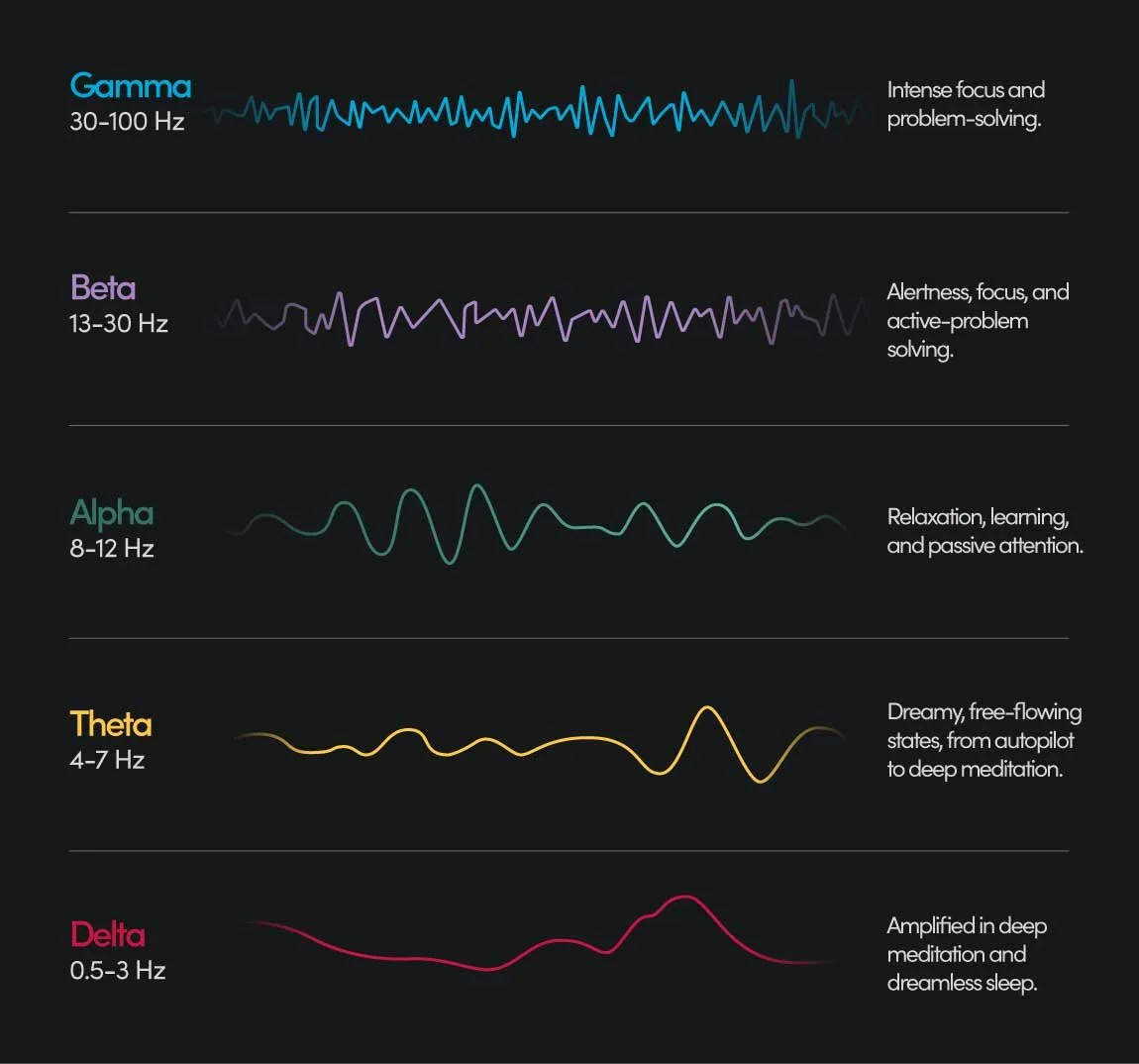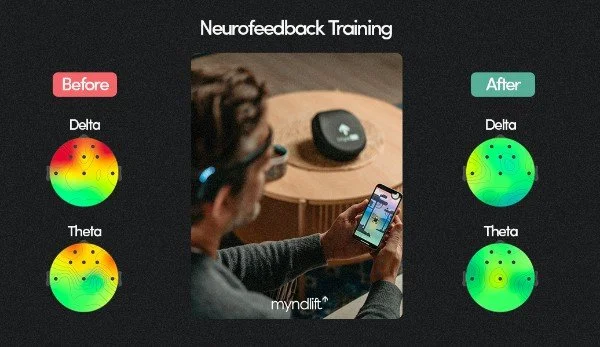NEUROFEEDBACK
What Is Neurofeedback Therapy?
As helpful as medication and traditional forms of talk therapy can be for those who suffer from mental health concerns, others can feel stuck. Whether they struggle with the lack of focus that often occurs with ADHD or intrusive thoughts as a result of OCD, a phobia, or an eating disorder, they may have reached a point where traditional treatment hasn’t helped them reach their goals.
The good news is that a non-invasive treatment exists that promotes well-being by targeting the brain. Neurofeedback is a form of biofeedback that empowers individuals to regulate their brainwave activity, leading to a wide range of potential benefits for both physical and mental well-being.
Achieving optimal brain function through neurofeedback can help you respond to stressful situations more positively and manage mood swings more effectively. And by promoting relaxation and reducing hyperarousal, neurofeedback can help you cope with stress and anxiety more efficiently.
As the Drake Institute of Neurophysical Medicine attests, “Neurofeedback teaches each patient to regulate their brain activity and guide it toward more functional patterns, which allows the brain to operate more optimally and reduce negative symptoms. Once this skill is learned, the patient can experience long-term improvement.” [1]
Neurofeedback Sessions From The Comfort Of Your Home
Before getting neurofeedback sessions underway, we first create a QEEG brain map—a baseline measurement of surface electrical activity—to assess current brain function and determine which wave lengths aren't functioning correctly. From there, we craft an individualized treatment plan that targets those areas with a goal to improve overall brain function.
With the exception of clients who visit Prospering Hope in person and engage in neurofeedback in conjunction with traditional talk therapy, all sessions are conducted at home. After you receive your equipment—a simple headband, electrodes, and gel—and download the neurofeedback app, you’re ready to begin.
Neurofeedback sessions are non-invasive and easy to fit into your schedule. Each 20-minute session is run through the app and only requires you to sit quietly and follow simple instructions.
While the app gives you the choice of either playing a game or watching a show, your brain is guided to keep focus and concentration. These simple activities reward your brain to work at its optimal level.
Throughout neurofeedback treatment, you will be closely monitored by our in-house clinical coordinator. They will check in with you routinely via the app to see how things are going and make any necessary adjustments to the treatment plan. We recommend 2-3 neurofeedback trainings per week to start, but we will customize your treatment plan according to your needs. To track your progress, we will update a new brain map 3-6 months into treatment.
To make EEG neurofeedback therapy convenient, we offer a monthly subscription model. Because every client is different, the time it will take to complete treatment varies, but we recommend a minimum of six months of neurofeedback to achieve lasting results.
Who Can Benefit From Neurofeedback Therapy?
Neurofeedback therapy can be a beneficial treatment for children and adults who experience anxiety, depression, trauma, PTSD, OCD, ADHD, autism, addiction, and phobias. In addition to head injuries and age-related cognitive decline, neurofeedback can also address other maladies that can be harder to treat through traditional means, such as sleep, eating, and seizure disorders.
Neurofeedback can help individuals improve their ability to focus and maintain attention. Enhancing concentration can lead to better memory and faster cognitive processing, which benefits students, professionals, and older adults. By improving cognitive function and reducing impulsivity, brainwave training and biofeedback can enhance decision-making abilities and emotional regulation, helping build confidence and self-esteem.
What’s more, neurofeedback can help regulate brainwave activity to promote alertness and reduce fatigue, leading to increased energy levels. Athletes, executives, and others seeking peak performance have used neurofeedback to improve focus, reduce stress, and enhance cognitive abilities.
The research conducted on the efficacy of neurofeedback therapy endorses its use “for ADHD, anxiety, autism, insomnia, PTSD, tinnitus, and more.” [2] [3] For ADHD specifically, a study confirmed an 85 percent success rate “for improvements in focus, behavior regulation, and impulsivity.” [4] And according to a National Institutes of Health study, “a study on combat PTSD showed a 61.1 percent remission rate with neurofeedback.” [5]
Why We’ve Added Neurofeedback Therapy To Our Practice
The owner of Prospering Hope, Leigh Alanna Todd, became passionate about neurofeedback after her daughter received treatment to help combat her ADHD. Her daughter, who was adopted from foster care, was drowning in medication to help her stay regulated during school. After 8 months of neurofeedback therapy, her grades drastically improved, and she was able to lower the level of medication she was taking.
Witnessing these types of results firsthand prompted Leigh to get trained in neurofeedback and include it alongside the mental health counseling services she already provides. At Prospering Hope, we recognize that sometimes clients feel like they haven’t benefited from traditional therapy or from increasing their medication. If other avenues of treatment haven’t provided the results you were hoping for, we highly recommend you try neurofeedback.

Find Out How Neurofeedback Therapy Can Help You
Prospering Hope is excited to offer the healing benefits of neurofeedback therapy to our clients. For a free 15-minute consultation to find out more about Prospering Hope’s online neurofeedback or to schedule an appointment, please call us at 713-367-1582 or visit our contact page.
[1] https://www.drakeinstitute.com/benefits-of-neurofeedback-therapy-and-training
[2] https://pubmed.ncbi.nlm.nih.gov/37682024/
[3] https://microcurrentneurofeedback.com/clinical-efficacy-of-iasis-micro-current-neurofeedback/
[4] https://sinhaclinic.com/evidence-based-research-on-neurofeedback/
[5] https://pmc.ncbi.nlm.nih.gov/articles/PMC6650780/








